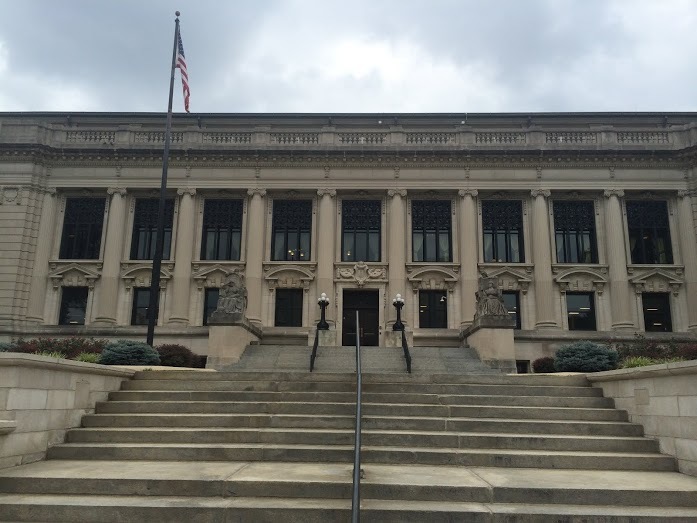Home builders breathed a sigh of relief when a recent Illinois Supreme Court decision upheld the status quo for home builders' liability when a defect is found years down the line.
“That was a very important decision to home builders. I think it had tremendous impact,” said Bill Wald, executive vice president of the Illinois Home Builders Association.

The decision ended a five-year legal battle brought by homeowner John Fattah against Mirek Bim, former president of defunct home building company Masterklad Inc.
Fattah filed a lawsuit in 2011 against Bim and his company in Cook County Circuit Court because a retaining wall at his Glenview home failed and the paved six-foot tall, 1,000-square-foot patio collapsed. Fattah wanted $86,000 from the company that built the home.
The plaintiff was the second owner of the home. He’d purchased it “as-is” for $1.1 million about a year before the patio collapsed. The previous owner, Beth Lubeck, had purchased the house from Masterklad in 2007 for $1.7 million. The original owner waived her rights to an implied warranty of habitability when she purchased the house. Implied warranty is a legal promise from the builder that the house isn’t defective. Under state law, implied warranty lasts for up to 14 years, so if a defect that couldn’t have been found by an inspector is revealed later on, the homeowner can hold the builder liable. Implied warranty can pass from one homebuyer to another when the house is sold.
Lubeck opted for an expressed warranty, which limited Masterklad’s liability exposure in a way that both the buyer and seller agreed was fair.
Expressed warranties typically provide the buyer a warranty against all defects and other construction issues for a certain length of time. It usually lasts for a year, according to the Home Builders of Illinois. The practice has become industry standard in Illinois backed by court precedent, but not codified into state law.
The Cook County judge said Fattah couldn’t sue the builder because the previous owner had waived her rights to the implied warranty and Fattah had bought it “as-is.” Fattah argued that he didn’t know about the waiver and so he should be allowed to call on the terms of an implied warranty.
Fattah appealed the decision, and the First District Appellate Court panel reversed the decision. This was unknown to Bim, who had represented himself before the first court and wasn’t properly informed of the appeal, Shawn Doorhy, a real estate attorney who represented Bim before the Supreme Court, told the Cook County Record.
Doorhy saw the panel’s opinion and, thinking it was wrong and could have a major impact on the industry, wrote to Bim about appealing to the state Supreme Court.
The intermediate appellate court’s decision “gave the second buyer more rights than the first buyer had,” Doorhy said. Bim returned his letter with a phone call just 48 hours before the deadline to appeal the decision expired.
Doorhy, an associate at Faegre Baker Daniels in Chicago, represented Bim pro bono. The case included claims that Bim’s right to due process was violated because he wasn’t properly told about the first appeal and that he shouldn’t have been sued individually. But the Supreme Court’s decision focused on the rights of the second buyer when the first waived the longer warranty.
The Supreme Court determined the First District court’s interpretation was unfair to builders, who often bargain for a waiver by offering an expressed warranty, sometimes with a lower price on the house.
“The builder-vendor has no means of knowing when the house might be sold by the first purchaser or to whom and, thus, no way of knowing when, or if, liability for latent defects in the construction of the house will reappear,” the justices wrote in the 7-0 decision. “Thus, in this case, extending the implied warranty of habitability to plaintiff would mean that defendants paid the price to obtain the waiver of the implied warranty from Lubeck, by providing and performing under an express warranty, but face liability anyway. This is unreasonable.”
Essentially, the court made the waiver a contract matter, said Rich Guerard, a real estate attorney in Wheaton.
“It’s not fair to let the second purchaser step into the shoes and not be bound by the agreement,” Guerard said.
“They’d have to insure you for a latent defect — it’s something no one can know. It can be three or four purchases away,” Guerard said. “They’re going to charge a lot for that. The consumer is always the one who pays the increased cost.”
The likeliest result of a change in the way the court sees these warranties would have been increased housing prices. That could easily grow into larger economic problem, home builders argue.
“When the builder prices the house, part of their pricing analysis includes an estimation of their risk exposure,” Doorhy said.
For every $1,000 increase in housing costs, 8,250 families are priced out of purchasing a home in Illinois, according to research by the National Association of Home Builders, which was cited in a friend-of-the-court brief filed by the state home builders association chapter.
The industry likely would have pursued state legislation that ensured the expressed warranty was communicated to any subsequent buyers. Ward said a new law could have required the warranty to travel with the deed.
Ward said he thinks the court saw how the case could also affect warranties outside home construction.
“Why couldn’t that decision apply to another product?” he said. “I think there was more riding on this than just the warranty on the construction of homes.”
But the Supreme Court’s decision means they don’t have to weigh the impact any more.
“Once it’s waived, it’s waived,” Doorhy said. “You can’t revive it simply by a sale.”
